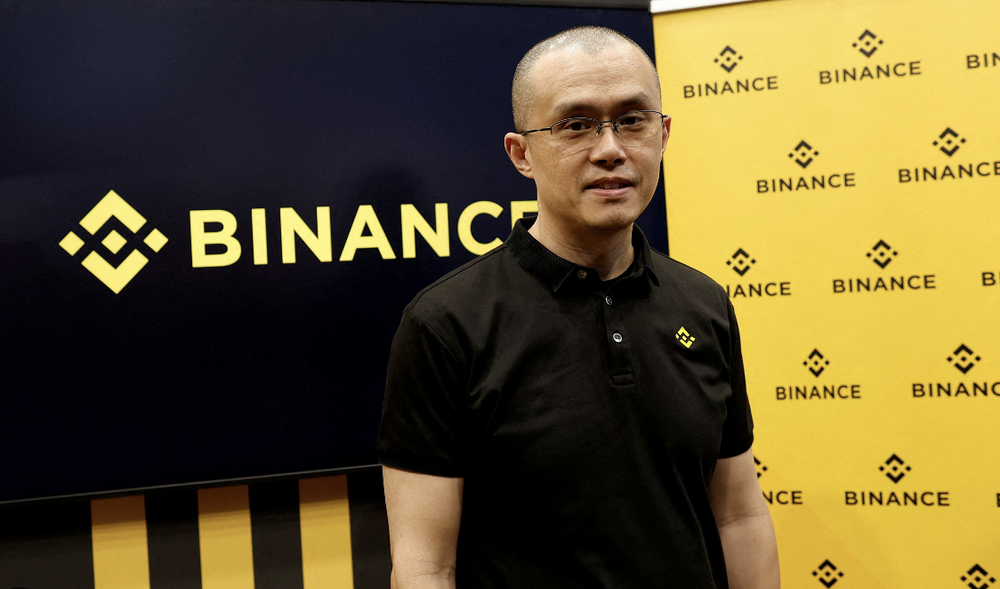From the coin security to roll back the stolen BTC transaction, talk about how Bitcoin can ensure "unable to modify" from the code
1. According to Zhao Changpeng, it may be very controversial to roll back the BTC transaction to recover the 7000BTC lost by the currency ( live video (with Chinese subtitles) ).
2. This rollback is technically feasible : as long as there is more than 51% of the calculation power, before the stolen currency trading block, start digging a fork again, and only remove the stolen transaction (and subsequent transactions), normal packaging Other transactions in the original chain, that is, after the new fork length exceeds the original stolen chain, reorganization will occur.
Reorg can be simply understood as: the new fork covers the original stolen chain, and the effect is: to roll back the stolen money transaction separately without affecting other transactions .
3. This rollback was fiercely opposed by community members (and I also opposed it) because it changed the most important feature of Bitcoin: it could not be modified. But others have begun to consider further:
- DEX is very hot, and DEX has loopholes, saying that "preemptive trading" is a disease.
- Talking about safety from the currency and the "stolen"
- EOS REX security series starts from source code and plays REX (1)
@潘志彪kevin: 1. If the money is lost by a government or even an institution like the FBI? What happens if the agency asks for a pool of mines, regardless of company or individual? 2. If the money is stolen by a world-renowned terrorist organization? Suppose they take 7K coins to buy a nuclear bomb?
The answer given by Pan Zhiwei ( related microblog ) is: running the whole node, and then actively playing the full node patch (UASF) before the reorg (reorg) occurs, the patch can forcibly recognize the stolen transaction, making the height even the winning recombination chain It is also impossible to overwrite existing data.
4. Pan Zhiyi's answer does not work. According to his approach, the BTC transaction cannot be prevented from being modified. It is only by actively patching and splitting a forked chain in which the transaction has not been modified .
If the government legally requires the mine pool (mostly operated by the company) to roll back a stolen money transaction separately, the mine pool can only do so. Rolling back this transaction will not have much direct impact in a short period of time. It can be expected that the branch after the rollback will still occupy most of the market value, users and resources .
According to Pan Zhiwei's process, only a few people (the ability to notice the event in a short time and play a full node patch) retain an unmodified chain, and may eventually form an ETH-like (rollback DAO money) & ETC Double-chain (retaining DAO money) .
5. So, what if you think Bitcoin's “unable to modify” is very important? Very simple, no deep reorganization is allowed . In addition to BUG in the history of Bitcoin, there has never been a reorganization of more than 6 blocks. Users also generally believe that 6 is confirmed to be safe, so you can write directly in the code: Do not accept reorganization (reorg) above 10 blocks .
6. Is it familiar? That's right, this is the added protection rule (rolling checkpoint) that BCH has during the BSV battle . If the stolen money happens on the BCH, there will be no such disputes at all, because once the BCH confirms the above, it will never be rolled back – the attention is absolute, even if you have more than 100 times the power to dig the fork is useless. The code does not accept reorganizations above 10 blocks (reorg).
Isn't this a BTC (Core) supporter like Pan Zhiwei, who can't help but be reluctant to modify it? 🙂
7. The rolling checkpoint protection rule directly ensures that the BCH is a small power chain and is not afraid of power attack. The exchange also generally reduces the requirement for the BCH confirmation number , making the BCH better.
Then the BSV supporters were mad and began to slap some of the fallacies of "rolling checkpoints to prevent miners from freely competing." For these nonsense, you can die in one sentence: Why should you allow the 6 block confirmation to be reversed ?
Has there been a normal 6 block rollback in history? There are almost no blocks in Block 3. (In addition to the BSV smashing huge chunks, I’m going to roll back my own 6 blocks:)
The 6 block rollback is an attack. Why should the attack be allowed?
8. From this incident, we can see the route of BCH: progressive evolution, pragmatism, and the number of users.
Question : “Cannot be modified” Risky? (Someone wants to attack? Someone is stolen and wants to roll back the transaction?) Solution : Add rules, prohibit deep reorganization above 10 blocks, and ensure that 10 is absolutely safe.
9. By the way, Nakamoto is also a typical pragmatism. When Bitcoin is still weak, it is not entangled with WikiLeaks (Zhong Bencong convinced WikiLeaks founder Assange not to use Bitcoin to donate). Make sure Bitcoin survives, not provoke the US government: I donated money to WikiLeaks and have the ability to seal me .
In contrast, the BSV community cult temperament:
Don't let me go, you are the grandson! It is the currency security that needs BSV, not the BSV needs the currency security.
Then I still shamelessly claim to be the successor of Nakamoto’s thoughts. It’s really shameful-_-b
We will continue to update Blocking; if you have any questions or suggestions, please contact us!
Was this article helpful?
93 out of 132 found this helpful
Related articles
- Bitcoin fled the period of the flood season, nearly 90% of the arrogant mining machine, what is the meaning?
- 12 hours after the stolen 7000 bitcoin was stolen
- Secret Dark Bitcoin Anti-Tracking Tool
- Analysis of the market: Up-and-coming 6000 seccoin money stolen 7000btc, how to develop the market outlook?
- Leading Bitcoin in one step! Bitcoin Cash (BCH) will be hard forked next week to welcome Schnorr signature
- May 8th analysis: amazing and consistent hacking market
- Monthly market report | market value and transaction volume have increased sharply, but only 30% of profitable people





